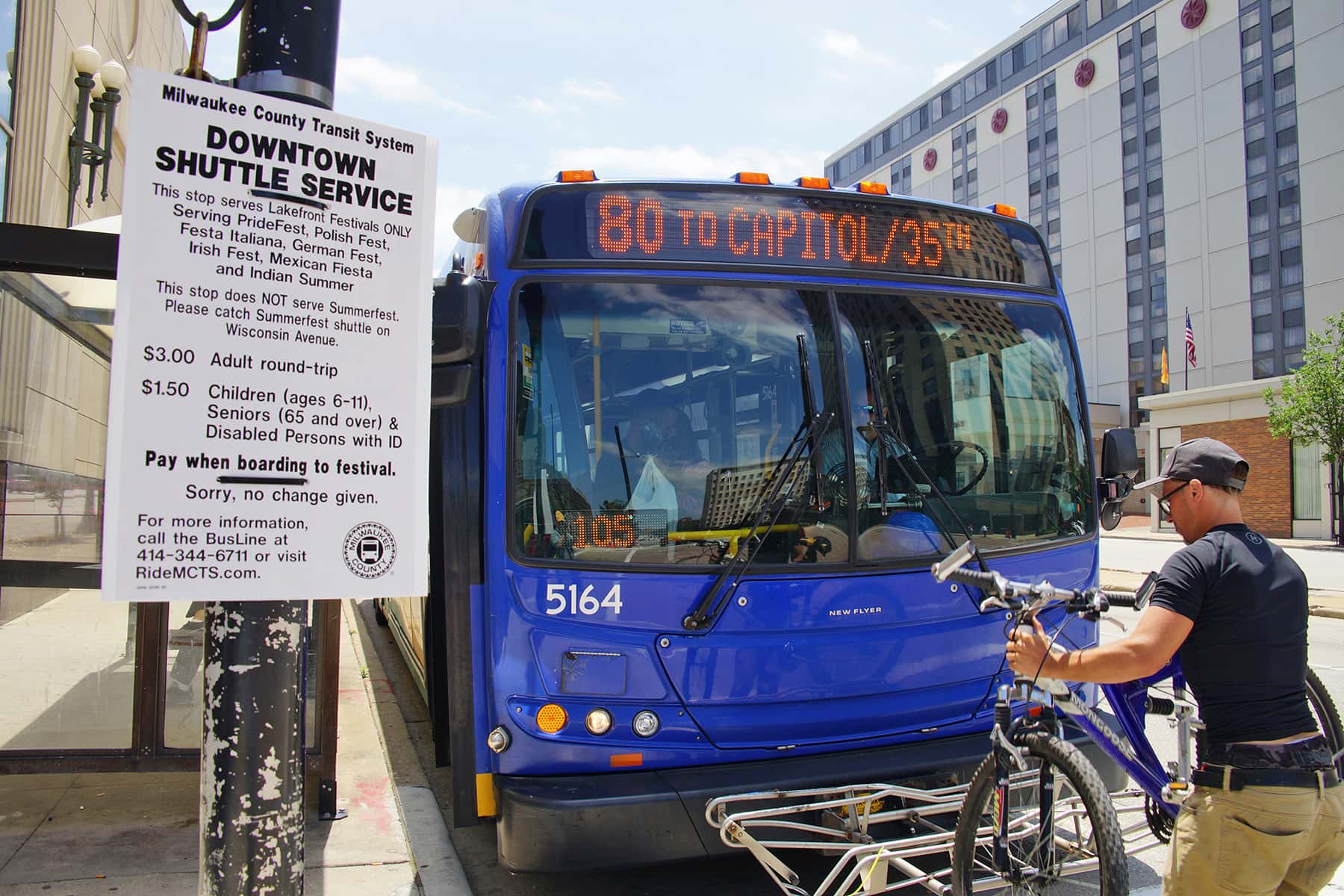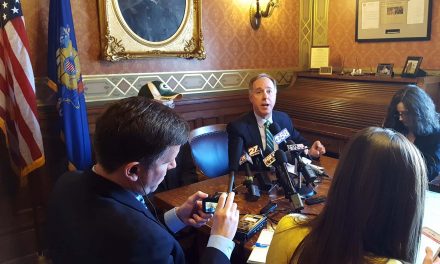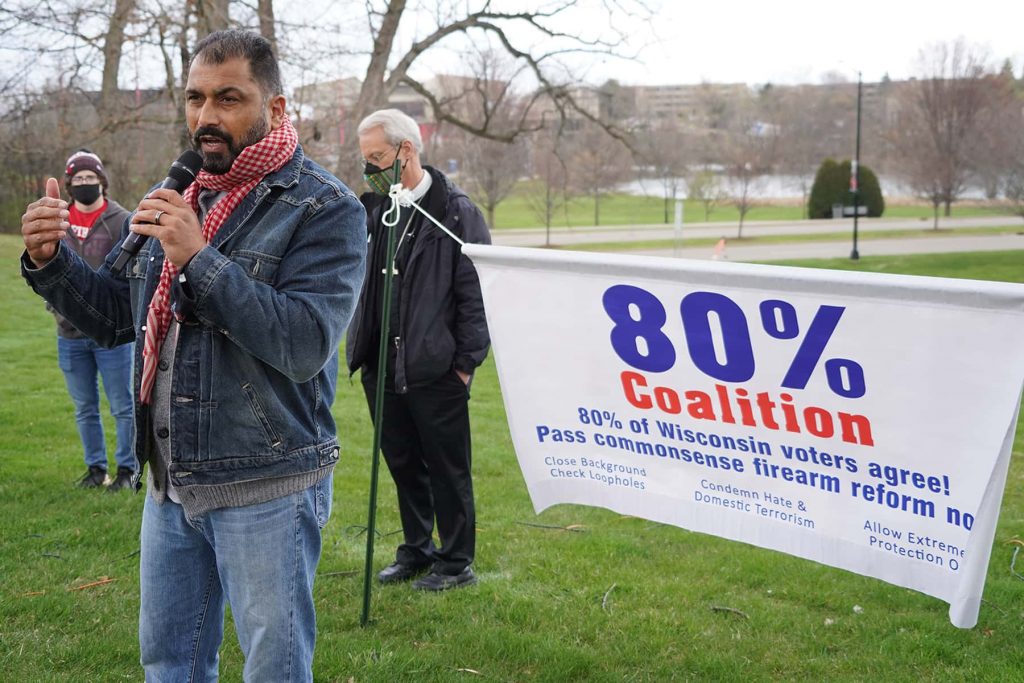
Milwaukee County Executive Chris Abele is asking the bus drivers union to set aside their differences so Milwaukee County Transit can find a way to get more money from the state.
Milwaukee County and its bus drivers have been in contentious contract negotiations for more then 18 months. In an open letter sent Thursday to the Amalgamated Transit Union Local 998, Abele praised bus drivers for their hard work, but stressed the county has reached a financial crisis point.
Facing a $6.4 million budget deficit next year, Milwaukee County Transit System (MCTS) is preparing to reduce bus service by 10 percent in 2020. This includes freeway flyer routes, city routes and shuttles.
In 2019, nearly 3 percent of MCTS’s routes were reduced. The county’s transit system, which helps people get to work and school in a city where 30 percent of residents don’t own a car, has 56 routes a day. Bus routes run seven days a week, 22 hours a day. Richard Olson has been a bus driver for 25 years in Milwaukee. He said cutting routes will segregate the city even more.
“It makes no sense to me to cut service for kids trying to get to school and people trying to go to work,” Olson said. “People trying to better themselves? We should be doing everything we can to do better for them.”
The union and Milwaukee County have been battling over bus driver pay, health care benefits, and routes. Union President James Macon said the drivers will review the County’s latest proposal next month.
Abele said the county is seeking a long-term funding solution from Madison to “do right by the drivers.”
AN OPEN LETTER FROM COUNTY EXECUTIVE CHRIS ABELE TO ATU LEADERSHIP
The Milwaukee County Transit System is a powerful economic development force that provides a critical lifeline for tens of thousands of bus riders every day. Thanks to our drivers, operators, mechanics, dispatchers and other dedicated workers who go above and beyond the call of duty every day, Milwaukee County residents have the mobility and connectivity they need to live their lives. It is significant, yet not surprising that the extraordinary quality of service our MCTS employees provide our residents frequently catches the attention of the entire country.
From the day I took office as County Executive, I have fought hard to support our public transit system and our MCTS employees. Together, we reversed fare hikes, and added service in communities of need. We added new buses to our fleet. We celebrate exemplary service through MCTS Excellence. And we have built a modern transit system that we can all be proud of.
But the County has reached a financial crisis point. We rely heavily on state funding for our transit system; and that funding has not kept up with our needs, especially as the cost of service increases. State law caps our ability to collect funding from local taxes, so the County Board and I are limited in investing in the transit system at the level we deserve.
We are actively seeking a long-term funding solution from Madison so that we can preserve the high-quality transit services for our residents, and do right by the drivers who go above and beyond to ensure Milwaukeeans get where they need to go.
Despite the countywide budgetary challenges, MCTS was able to offer a meaningful, fair and viable contract for employees. Throughout this process, MCTS heard loud and clear what is most important to employees and their families, and crafted a proposal responsive to the concerns. I believe this contract represents a true compromise prioritizing both the needs of our employees and our community.
This contract provides a 2 percent raise upon contract signing, with another 1.1 percent raise on April 1, 2020. Employees will continue to receive cost-of-living wage adjustments, with a cap of 2.5 percent a year. The co-insurance provision was of great concern to employees, so it was removed. Every employee – even taking into account out of pocket maximums for health care – will see a net increase in pay.
MCTS took the most recent counter proposal from ATU under serious consideration. They found that there is no solution that does not directly result in an additional $5.5 million in route cuts, nearly double the cuts currently under consideration. Additionally, while the safety and security of our employees and riders is our top priority, the proposal to arm drivers is simply a nonstarter. For this reason, I called on MCTS to create a task-force with management, drivers and riders to give us recommendations on how to best keep our buses safe.
While we can all agree that even one cut to bus routes is one cut too many, I am proud that MCTS is able to offer a contract that ensures all employees see a net gain in pay. Now is the time to work together. Let us implement this contract and get employees the raises they deserve, so that we can start working together to find a long-term funding solution from the state and pave a new road for our future.
Governor Tony Evers has already taken action to increase funding for Milwaukee County specifically and all localities generally, said the governor’s spokeswoman Melissa Balduff said.
“We know that it’s not just large cities that are facing funding challenges, but our rural communities too, so we hope that our Republican in the Legislature will join us in funding our local governments fairly,” Balduff said.
A report last fall on Wisconsin’s public transportation systems found inadequate funding has prevented many communities from expanding service.
Corrinne Hess
Lee Matz
Originally published on Wisconsin Public Radio as Milwaukee County Executive Calls For Unity Among Bus Drivers In Fight For State Funding














